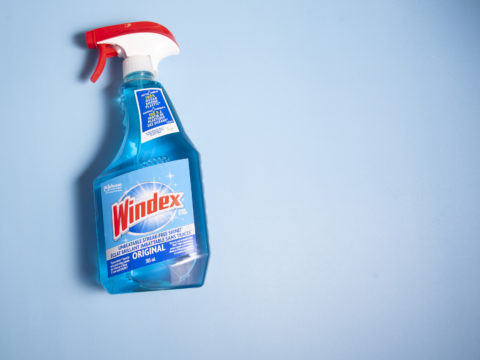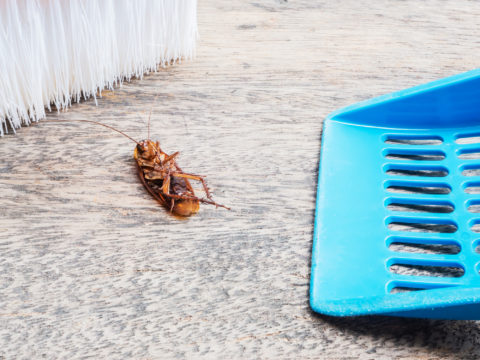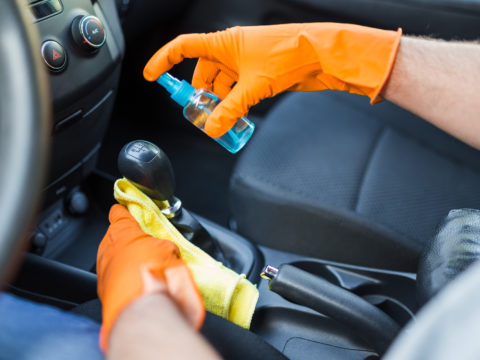As one of the most versatile items around your home, vinegar can help clean and disinfect a wide array of household items. If your car lacks a little shine, should you bring that vinegar from the pantry to the driveway? Is it safe to use vinegar on car paint?
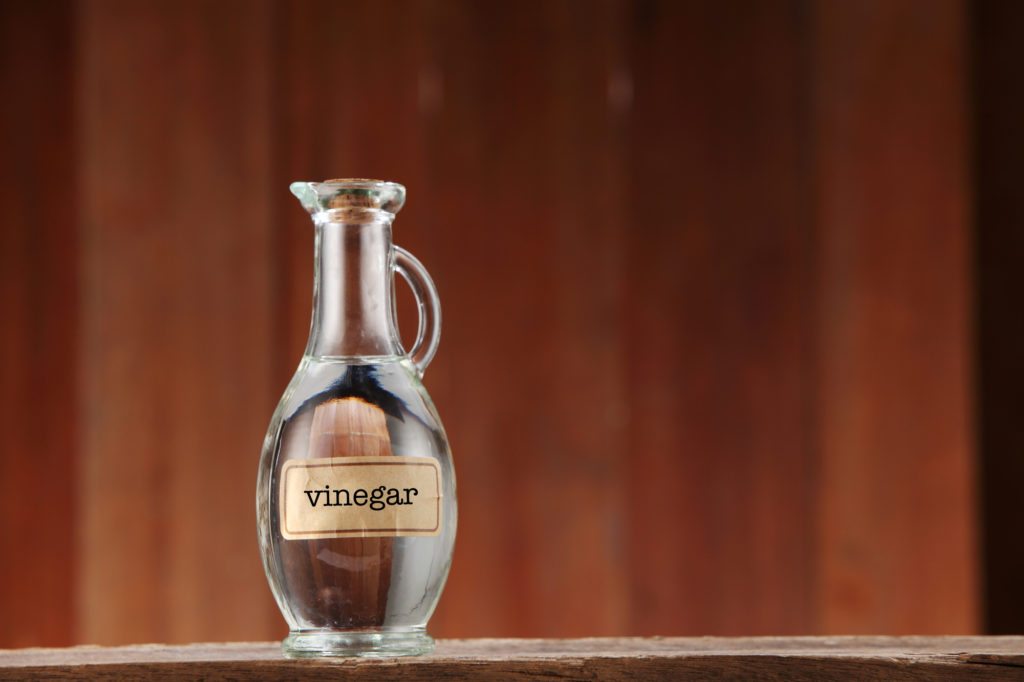
Contents
Can You Use Vinegar on Car Paint?
Generally speaking, you should not use vinegar as a treatment on car paint. While vinegar (specifically white vinegar) may work well to remove stuck-on grease in the kitchen or grime from a showerhead, the same properties that make it effective may damage the paint job on your ride and prove quite costly.
Will Vinegar Harm Paint on a Car?
What makes vinegar great at removing tough stains also makes it dangerous to your car’s exterior paint: acidity. On the pH scale (0-14), vinegar typically checks in around 2. Substances with that level of acidity can eat away at the car’s outer layer of paint and remove the car’s clear coat and any wax applied to the exterior.
Vinegar will also wear away at some of the paint’s natural lubrication, making it more vulnerable to dings and scratches.
If properly diluted, you can use white vinegar sparingly to remove tough-to-clean stains like tree sap, bird droppings, or bugs from a car’s exterior. Still, the solution should be dried and removed immediately after use to avoid unnecessarily damaging your car’s paint.
Will Vinegar Damage Car Interior?
While using vinegar on the exterior of your vehicle should be avoided in most situations, vinegar can be a lifesaver for your car’s interior. When mixed properly with water, vinegar will remove stubborn stains and fight lingering odors on almost all surfaces and is a cheap, readily available alternative to several well-known commercial car cleaners.
Vinegar Uses on a Car
There are many ways to use vinegar as a cleaning agent for your car. A few of the most useful are:
- Cleaning
- Deodorizing
- Removing Stickers from Glass
- Preventing Frost and Ice
Cleaning
The same properties that make vinegar a tremendous household cleaner also work wonders in your car. Vinegar can help remove stuck-on stains from food and drink spills or eliminate dirt and grime that have built up on a car’s interior over the months and years. Also, it’s versatile enough to work on various surfaces, unlike some cleaning agents that work only on leather or vinyl.
Deodorizing
Are you still smelling that fast food value meal you ate while stuck in traffic last week? Are you catching an unwanted whiff of wet dog after getting caught in the rain with Fido? A small amount of vinegar mixed with water can help to mask and remove smells left in your car by malodorous guests without the overpowering chemical stench of other air fresheners.
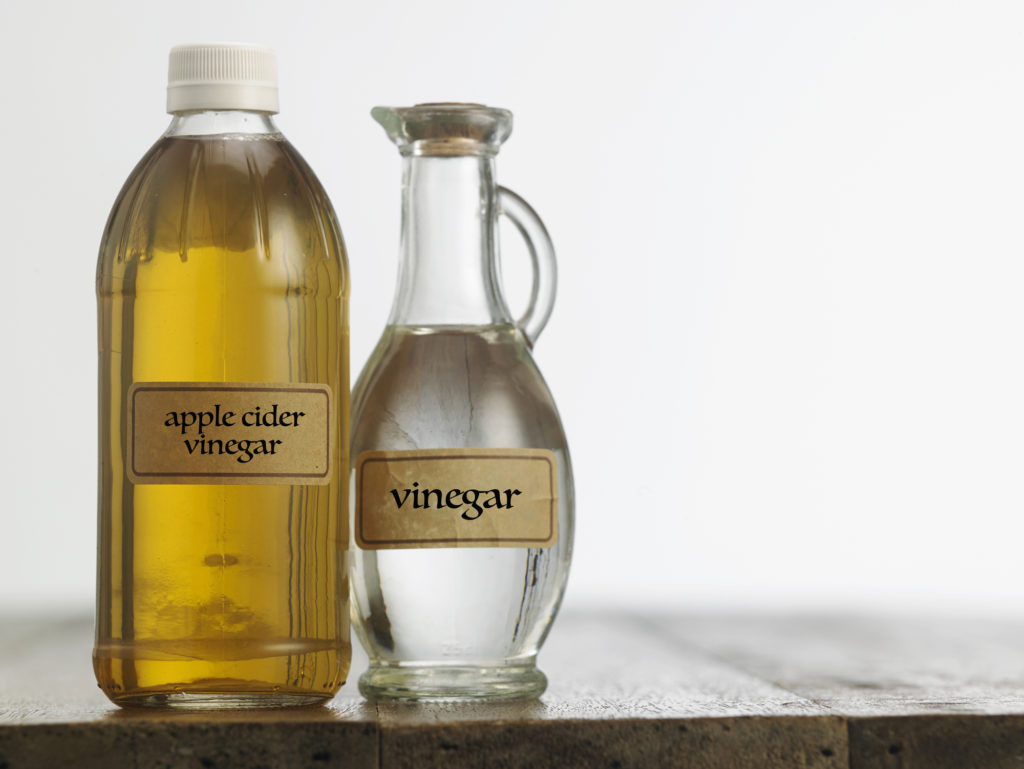
Removing Stickers From Glass
Do you have a parking pass from a gym you haven’t been to in six months? Vinegar can help restore the shine to your glass and eliminate unwanted residue that tends to stay behind from older adhesives.
Allow a damp rag or paper towel soaked in vinegar to lay on the affected surface and chip away safely and naturally at the gunk left behind on the glass. Vinegar can also help remove water stains and smudges left on your windows by kids or pets.
Preventing Frost and Ice
Readers in cold climates know the feeling. It’s a winter morning, you’re running late for work and your windshield is covered in ice. Before you blast the defroster and pull out the ice scraper, reach for your vinegar. A properly mixed concoction of vinegar and water can make morning frost a thing of the past.
Car Surfaces You Can Clean With Vinegar
While you should avoid using vinegar on your car’s exterior, here are a few other surfaces on which vinegar might work wonders:
- Vinyl/Cloth
- Leather
- Floor Mats
- Hard Surfaces
- Tires
Vinyl/Cloth
The most common type of car interior can also be the trickiest to clean. Stains seem to set on cloth the second they make contact with the seat, but vinegar can help reverse any mishap in your car. When mixed, water, dish soap, and vinegar can help brush out nearly any stain from your cloth or vinyl upholstery.
Leather
Like cloth or vinyl seats, leather interiors can benefit from a vinegar refresher. While a brush works best on synthetic surfaces like cloth and nylon, a sponge, paper towel, or cloth is ideal for leather. Be careful to properly dilute your vinegar with water, as failure will risk drying out the leather.
Floor Mats
The most forgotten surface in your car’s interior, floor mats, take a beating every day from your shoes and all the dirt and debris that comes with them. Vinegar can help remove the blemishes caused by mud or spills, helping your car’s floors withstand the wear and tear of everyday use.
Hard Surfaces
Your seats and your floors aren’t the only parts of your car that suffer the ills of various drops and spills. Center consoles, steering wheels, and cup holders can start to load up with small messes after months and years of use. You can help them look new with a dash of vinegar and a soft cloth.
Tires
After pounding the pavement day after day, your tires can look worse for the wear. Vinegar can provide a quick do-it-yourself alternative to running to the car wash. Adding a touch of baking soda to your vinegar-based solution can help remove some of those harder-to-get stains off your tires.
Vinegar Alternatives
If you used up all the vinegar in your kitchen or you’re looking for something with a more mellow smell. Because it has a similar pH level to vinegar, lemon juice can be used as a replacement. This can be an enticing replacement if vinegar is a little too pungent for more sensitive noses. Baking soda and dish soap work best together when a touch of vinegar is added to the mix, but they also work well on their own against tough stains.

